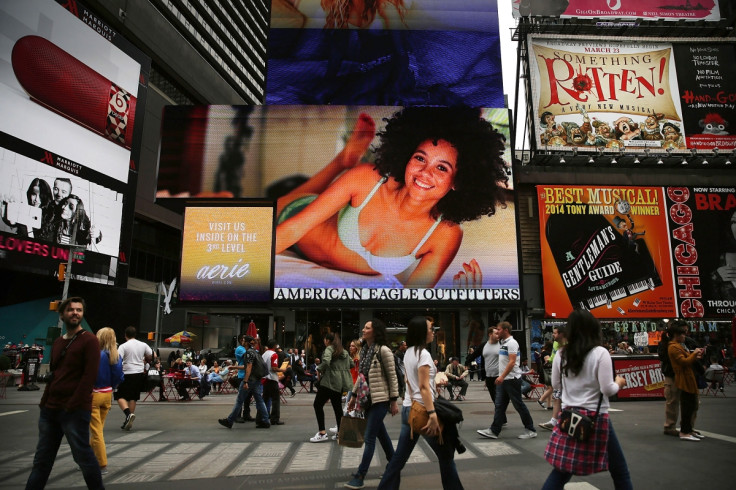US senator calls for probe into 'spying billboards' that tap into people's cellphones

US Senator Charles Schumer is calling for a federal probe into an outdoor advertising company's "creepy" technology that uses mobile phone data to learn about people who walk or drive by billboards. Schumer alleged that Clear Channel Outdoor Americas' Radar programme, which uses high-tech billboards to collect location data from people's mobile devices and monitor their travels and shopping habits, may violate privacy rights.
"New spying billboards are being installed across the country, including right here in New York City, and they are being used to collect your mobile phone data," Schumer said in Times Square, surrounded by the alleged prying billboards. "A person's cellphone should not become a James Bond-like personal tracking device for a corporation to gather information about consumers without their consent."
Released across the country in late February, Schumer alleges these billboards could constitute a deceptive trade policy since their practices violate the privacy of people who don't know they are being watched or that their data is being mined.
"Once you pass by a Clear Channel spying billboard, your every move could be tracked, recorded and stored," Schumer said. "That data can be combined with public data available online to create an incredibly detailed profile of you and your preferences. We all know that it's a short step away from tracking this data and holding it, to attaching your name to it."
Schumer said he has submitted a letter to Federal Trade Commission Chairwoman Edith Ramirez asking the FTC to "investigate immediately" if privacy violations are taking place and require billboard companies like Clear Channel Outdoor to give consumers who do not want to be tracked and monitored an opt-out option.
The company denies that the practice is invasive, saying its ad programme is a partnership between Clear Channel and other tech companies, including AT&T, and "uses only aggregated and anonymised information" collected by other companies. This information is then sold and used to advertise products to specific consumers based on their shopping habits. The company adds that individual consumers cannot be identified.
Company spokesman Jason King reportedly provided the Associated Press a copy of a letter that it sent to another US lawmaker who also raised similar concerns about the ad service earlier this year.
The company "does not receive or collect personally identifiable information about consumers for use in Radar," CEO Scott Wells wrote in a March letter to Minnesota Democrat Sen Al Franken, according to AP. "It's not necessary for the insights we are offering our advertising customers."
"Using anonymous aggregated data from consumer cellular and mobile devices, Radar measures consumer's real-world travel patterns and behaviours as they move through their day, analysing data on direction of travel, billboard viewability, and visits to specific destinations," the company says in a video on its website. "This movement is then mapped against Clear Channel's displays, allowing advertisers to plan and buy Out-Of-Home to reach specific behavioural audience segments."
Clear Channel Outdoor operates more than 675,000 billboards across the globe.
The Radar programme gives "marketers an end-to-end solution that provides a more accurate way to understand and target specific audience segments," Clear Channel's vice president, Andy Stevens in a statement in February.
Schumer insists that an investigation is needed, arguing that most people are unaware that their data is being monitored and collected, even if they did previously agree and accept the terms of service of an app that does later sell their location information.
"They have huge amounts of information on you, who knows what they could use it for?" Schumer warned. "It's something straight out of a scary movie. The scariest part is that the average consumer, the average cell phone user has no say in whether this happens."
© Copyright IBTimes 2025. All rights reserved.





















